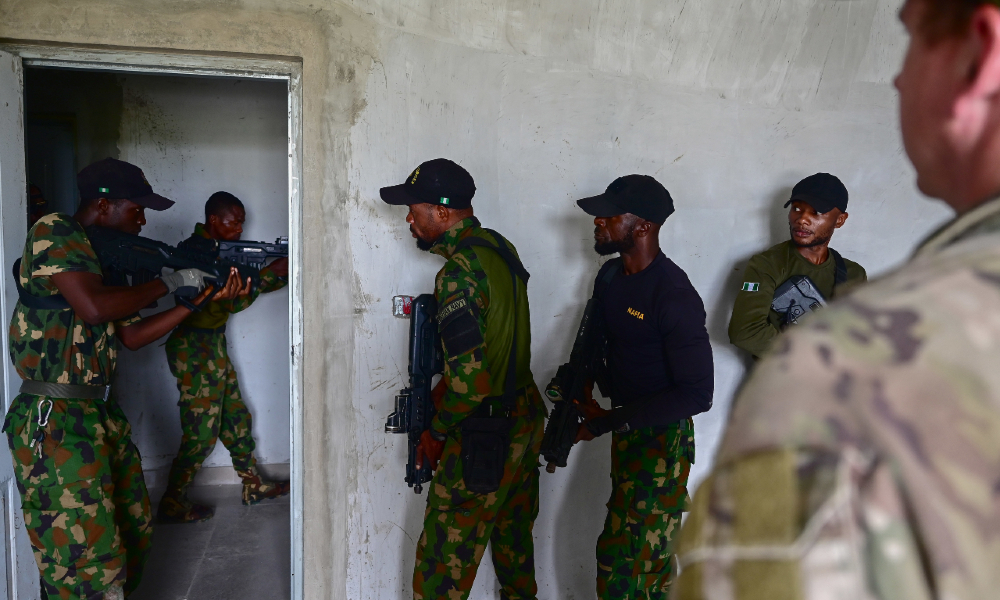Today's Headlines and Commentary
“If you threaten America, you will find no safe haven,” President Obama said last night in a highly anticipated statement outlining his strategy to “destroy” ISIS militants.
Published by The Lawfare Institute
in Cooperation With

“If you threaten America, you will find no safe haven,” President Obama said last night in a highly anticipated statement outlining his strategy to “destroy” ISIS militants. The President made it clear that the United States “will hunt down terrorists who threaten our country, wherever they are…That means I will not hesitate to take action against ISIL in Syria, as well as Iraq."
In case you missed it, you can watch the full speech here or read the remarks here.
In the speech, the President outlined a four-point “counterterrorism campaign” to degrade and ultimately destroy the militant group called the Islamic State: 1) The President plans to expand the scope of airstrikes and go on the offensive, targeting ISIS militants in both Iraq and Syria and authorizing missions that go beyond defense and humanitarian measures (The Washington Post explains how the U.S. could carry out strikes in Syria); 2) The United States will step up its efforts to arm and train Iraqi and Kurdish forces, as well as provide enhanced intelligence and targeting information; 3) The U.S. will work with allies to cut off ISIS funding and stem the flow of foreign fighters; 4) The U.S. and allies will continue to provide humanitarian aid to populations in Iraq and Syria.
As the Wall Street Journal writes, the President’s plan focuses on utilizing local forces to take the fight to ISIS under the cover of overwhelming American air power and intelligence. However, the Journal notes that America has historically had a mixed track record with this approach.
The remarks came one day before the thirteenth anniversary of the September 11, 2001 attacks, and Obama was quick to point out that this campaign would be very different from the previous wars in Afghanistan and Iraq, likening them to the ongoing missions against suspected terrorists in Yemen and Somalia. In short, it was Obama where he is most comfortable: counterterrorism operations, special forces, air power including drones, coalitions, and humanitarian aid. Even so, Peter Baker in the New York Times notes, “in ordering a sustained military campaign against Islamic extremists in Syria and Iraq, President Obama on Wednesday night effectively set a new course for the remainder of his presidency and may have ensured that he would pass his successor a volatile and incomplete war, much as his predecessor left one for him.”
He continues: “After years of trying to avoid entangling the United States in another “dumb war,” as he called the 2003 invasion of Iraq, Mr. Obama is now plunging the United States into the middle of one of the world’s bloodiest, most vicious and fratricidal conflicts.”
And while President Obama was resolute in stating that there would be no American combat troops, Defense News points out why “no boots on the ground” does not mean that U.S. service members will not take part in combat in Iraq and Syria. In fact, with the 475 additional troops that President Obama authorized last night, there are now more than 1600 American troops on the ground.
President Obama authorized 475 additional troops to Iraq. Here's how the total number has changed since June pic.twitter.com/upGbGjXelc
— Defense One (@DefenseOne) September 11, 2014
Cody Poplin is a student at Yale Law School. Prior to law school, Cody worked at the Brookings Institution and served as an editor of Lawfare. He graduated from the UNC-Chapel Hill in 2012 with degrees in Political Science & Peace, War, and Defense.
Ben Bissell is an analyst at a geopolitical risk consultancy and a Masters student at the London School of Economics. He graduated Phi Beta Kappa from the University of Virginia with majors in political science and Russian in 2013. He is a former National Security Intern at the Brookings Institution as well as a Henry Luce Scholar, where he was placed at the Population Research Institute in Shanghai, China.





